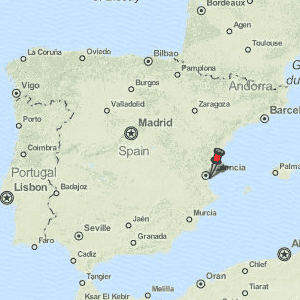Sweden boasts stunning natural beauty and tops international rankings in just about everything from quality of life to global competitiveness. But moving here is not without its challenges, on practical, bureaucratic, and cultural levels.
So what are the biggest challenges of moving to Sweden?
“This is the question I’m asked most often as a relocation consultant”, says Anne Pihl of Relocate to Sweden, a Stockholm-based relocation consultancy.
As an Irish expat who’s been living in Sweden for eighteen years, Anne is an experienced relocation consultant who can draw on lessons learned from several of her own international moves.
“I understand the challenges of moving to Sweden because I went through them myself,” she explains.
“That’s why I founded Relocate to Sweden – to provide relocation services based on the real expat experience of moving to Sweden.”
While Anne’s quick to point out that everyone faces their own unique set of circumstances and challenges when moving to a new country, she offers up a list of four of the most common challenges that expats struggle with when moving to Sweden.
1. Visas and Accommodation
The key challenges expats face initially when moving to Sweden are the immigration process and finding somewhere to live. Although EU citizens have an uncomplicated immigration process, the huge shortage of accommodation in Stockholm and other major Swedish cities poses a huge challenge for anyone moving here. An extremely competitive and tough property market for both rentals and purchase is a problem faced by expats and Swedes alike.
LEARN MORE: How long does it take to get a work permit for Sweden?
2. Joining the dots
Another ongoing challenge is understanding how the system works in Sweden. Like all countries, Sweden has its own way of doing things when it comes to essential services such as schools, health care, taxation and social security.

“Even though there is a lot of general information available online, it’s often unclear what exactly applies in your particular case,” says Anne.
It’s also often difficult to understand the processes and time frames involved. Language too can often be a barrier when it comes to filling out application and registration forms.
3. Culture shock
Sweden is a modern country and most people speak English really well. So it’s safe to assume (as many expats and Swedes do) that integration will be easy, at least for people moving from other western countries, right?
Wrong. Culture shock is actually a common (and often unanticipated) occurrence, but very real for many expats. Some are hit instantly whilst others enjoy a honeymoon period before Swedish culture shock strikes.
Stress caused by dealing with another language, long winters, and uncertainty about how to behave can all contribute to culture shock. Questions about how to interpret Swedish behaviour – either in the work place or in everyday situations – can also make social interactions more challenging than expected.
LEARN MORE: Swedish Business Etiquette – 10 essential tips
4. Keeping accompanying families happy
Being at home without any work or social network can be a very isolating experience for most people. And this is exactly what accompanying spouses or partners face when their family moves because of another family member’s job. This is particularly true of dual career couples, especially in a country like Sweden where nearly everyone works.
“People in Sweden generally have less free time available than in countries where it is more common for one parent to be at home with children,” Anne explains.
 Anne Pihl of Relocate to Sweden
Anne Pihl of Relocate to Sweden
As with a move to any new country, children can also have a tough time settling into their new environment or making new friends. Thus finding or building the right support network for the whole family is usually crucial for a successful transition to life in Sweden.
Your personal guide to life in Sweden
There’s no hiding from the fact that there are several formidable challenges facing anyone who moves to Sweden. When everything is unfamiliar or things aren’t turning out like you expected, it’s easy to feel overwhelmed.
Thus having someone locally to turn to when you plant yourself on foreign soil can make all the difference. Expert guidance, help with the practicalities of relocating, and access to a good contact network are all key to a smooth transition.
Click here to book a free introductory consultation
“I know exactly the type of help and support I would have appreciated, both when I moved here and over the first few years,” says Anne.
“If you need guidance or practical support for your new life in Sweden or just a sympathetic ear when everything seems wrong, please don’t hesitate to get in touch.”
Whether you need help with immigration, accommodation, finding the best schools for your kids, or getting quickly registered in the Swedish system, Relocate to Sweden can help.
“We also arrange cross-cultural and language training as well as job coaching to help you maximise your chances on the Swedish job market,” she adds.
“Sweden has so much to offer and getting off to a good start really helps you make the most of your time here.”
Contact Anne directly via email or by calling +46 8 36 10 11.
Find out more by visiting www.relocatetosweden.com.
This article was produced by The Local and sponsored by Relocate to Sweden








 Please whitelist us to continue reading.
Please whitelist us to continue reading.